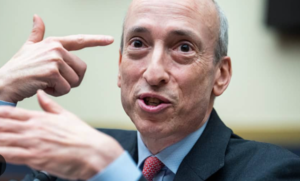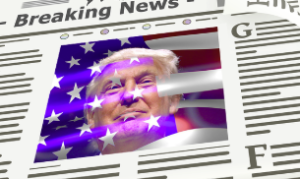$BTC $ETH $ETP
#cryptonews #bitcoin #ethereum #cryptocurrency #ETF #ETP #investment #financialmarkets #cryptoetf #blockchain #cryptoinvestment #regulation
A potential victory for Donald Trump in the upcoming U.S. elections is reportedly expected to ease the regulatory difficulties surrounding a slew of exotic cryptocurrency-related exchange-traded fund (ETF) filings. These products, aimed at providing broader crypto exposure to investors, have faced significant obstacles due to the U.S. Securities and Exchange Commission (SEC), which has so far only permitted spot-based ETFs tied to Bitcoin ($BTC) and Ethereum ($ETH). The regulatory stance under the current administration has made it challenging for issuers to introduce and list more diversified crypto ETFs, especially those featuring a broader range of digital assets in the U.S. market.
Exotic ETF products such as ETFs focusing on altcoins or complex crypto baskets have seen widespread approval in Europe, where authorities have approved exchange-traded products (ETPs) linked to about 30 cryptocurrencies, sometimes even including niche or emerging tokens. This regulatory flexibility has given European investors more options to participate in the broader crypto market and diversify their portfolios. On the other hand, the SEC’s hesitation to greenlight similar offerings in the U.S. stems from a mixture of concerns related to market manipulation, irregular pricing, and an insufficient regulatory framework. As a result, while Europe has offered stronger momentum in crypto ETPs, the U.S. market is still largely concentrated on Bitcoin and Ethereum-focused funds.
Market participants believe that a potential shift in regulatory policies under a Trump administration may bring relief for crypto ETF issuers. Trump’s previous stance on deregulation and business-friendly policies suggests that a shift in the SEC’s approach may foster a more lenient environment for these companies to introduce a wider array of products to retail and institutional investors. This could unleash significant growth in the U.S. investment market, allowing for more capital to flow into the cryptocurrency space, thereby increasing the market liquidity and introducing more competition among ETFs, potentially reducing fees for investors.
Overall, a more diversified ETF offering would likely attract a broader investor base, from retail traders to institutional funds seeking to hedge or allocate a portion of their portfolios into digital assets. Given the increasing interest in cryptocurrencies as both a store of value and a speculative asset, a Trump-led regulatory shift could reshape the landscape for U.S.-based investors, leveling the playing field with international markets. However, it remains to be seen whether such a victory would decisively alter the SEC’s stance and whether U.S. regulatory concerns surrounding market stability and investor protection would soften to the extent that a broader range of crypto ETFs could emerge.











Comments are closed.